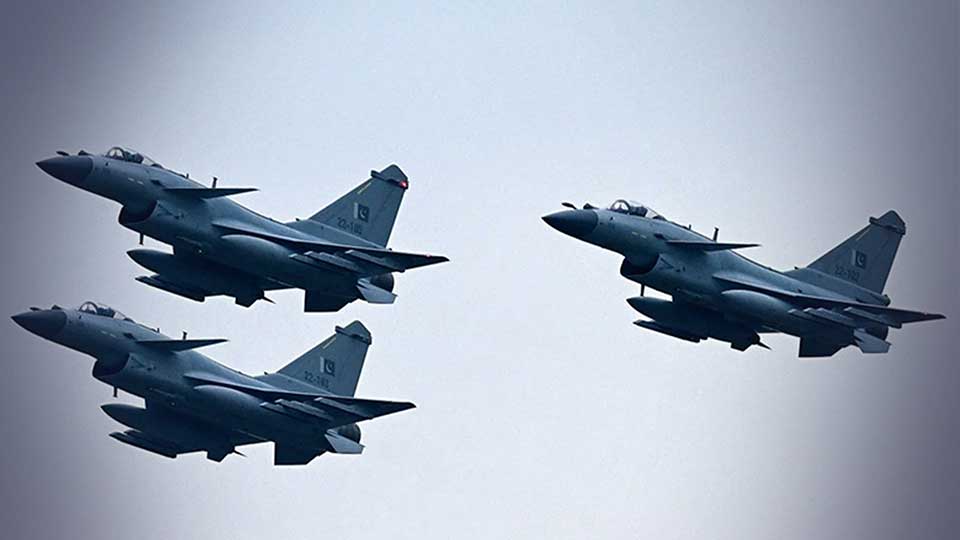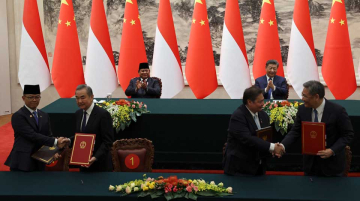
Indonesia’s defense minister’s deleted social media post on J-10C fighter jets may have revealed more than intended: Jakarta’s plan on a potential deal with China to purchase, signaling a quiet pivot that potentially disrupts Jakarta’s longstanding military ties with Washington.
Although Indonesia has long relied on U.S. arms and training, any move it makes toward non-Western sources, such as China or Russia, risks provoking pushback from Washington, where officials often view defense ties and arms purchases in binary “us or them” terms.
Over the weekend, Indonesia’s Defense Minister Sjafrie Sjamsoeddin shared a social media post quoting a conversation he had with Indonesia’s ambassador to China, Djauhari Oratmangun.
“We discussed the readiness to send Indonesian Air Force pilots to China for J-10 fighter aircraft training, as well as the evaluation of defense equipment production facilities,” the minister wrote in the post, which was visible as of last Friday.
Authorities in Indonesia and China have neither confirmed nor denied any agreement involving the J-10 fighter jets, and no official has explained why the post was deleted.

J-10 Fighter Jets Mystery: A Slip of the Tongue or a Signal?
In Indonesia, ministries are supported by public relations teams that oversee the publication of official statements and social media posts. The deleted post appeared deliberate and internally consistent, referencing a real meeting with an appropriate counterpart.
Although there is no official clarification, the event suggests two plausible explanations.
- First: accidental disclosure. The post may have been published without editorial clearance, inadvertently leaking sensitive information.
- Second: strategic signaling. The post may have served as an informal cue to traditional arms partners in the U.S. and Europe that Indonesia is broadening its procurement options to get leverage in negotiations, or is already engaged in quiet talks with China over the J-10C.
Most procurement timelines schedule pilot training only after a purchase is formalized, so the unusual timing of this event quickly raised eyebrows, suggesting Jakarta may be much further along in negotiations than it officially acknowledges.
A source close to the China-Global South Project within the relevant Indonesian ministry confirmed that Jakarta does intend to purchase the J-10 jets from China.
“[President Prabowo] does want to buy the J-10 from China, but the situation isn’t conducive yet,” the source said, adding that Indonesia is deliberately keeping the matter low-profile out of sensitivity to the United States and the current escalation in U.S.-China tensions.
Air Force Commander Offers Nuance, Not Confirmation
In a subsequent statement, Indonesian Air Force Chief of Staff Marshal Mohamad Tonny Harjono acknowledged that Chinese fighter jets were under consideration.
“There is a view in that direction,” said Tonny at the Indonesian Air Force Headquarters in Jakarta last Tuesday, “We are considering it.”
Harjono further clarified that the Indonesian Air Force’s procurement decisions are ultimately dependent on government policy.
“The Air Force’s role is to develop capability,” he said, “So whatever type of system, whether it comes from China, the United States, or elsewhere, we are ready to accept,” he concluded.
The public statements confirm that discussions around the J-10C are active, but it remains unclear whether any formal Letter of Intent or contract has been signed.
Indonesia’s next move will be watched closely, particularly in Washington and across Southeast Asia, amid an increasingly multipolar strategic environment.






